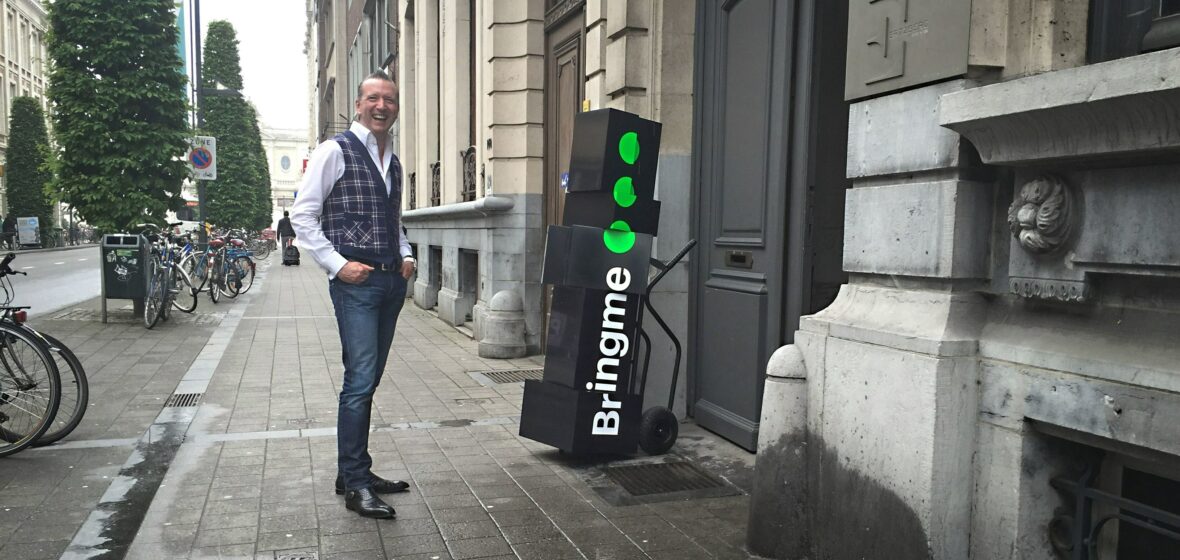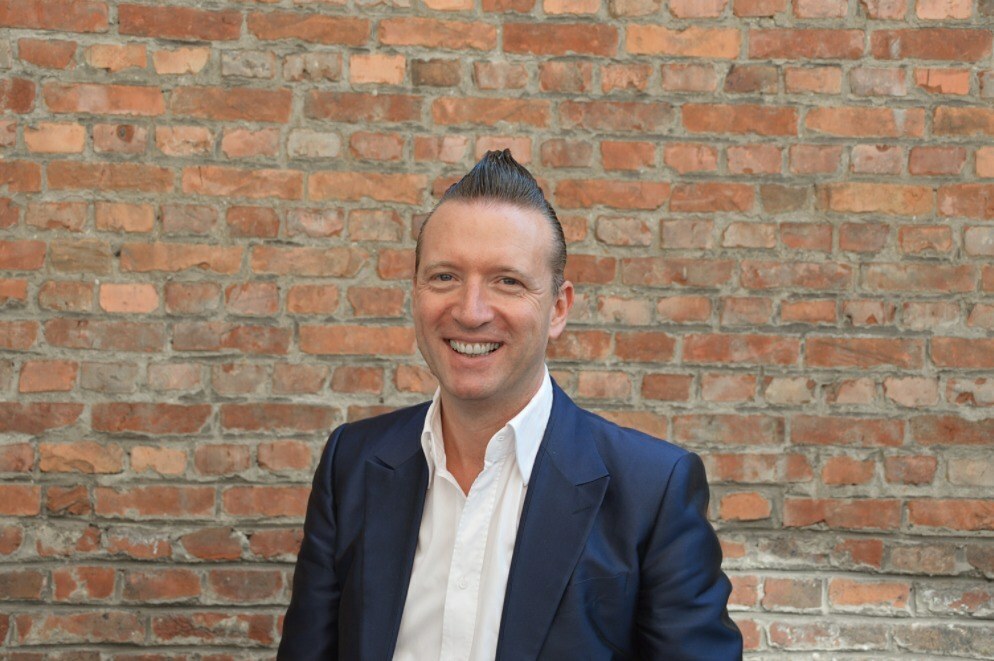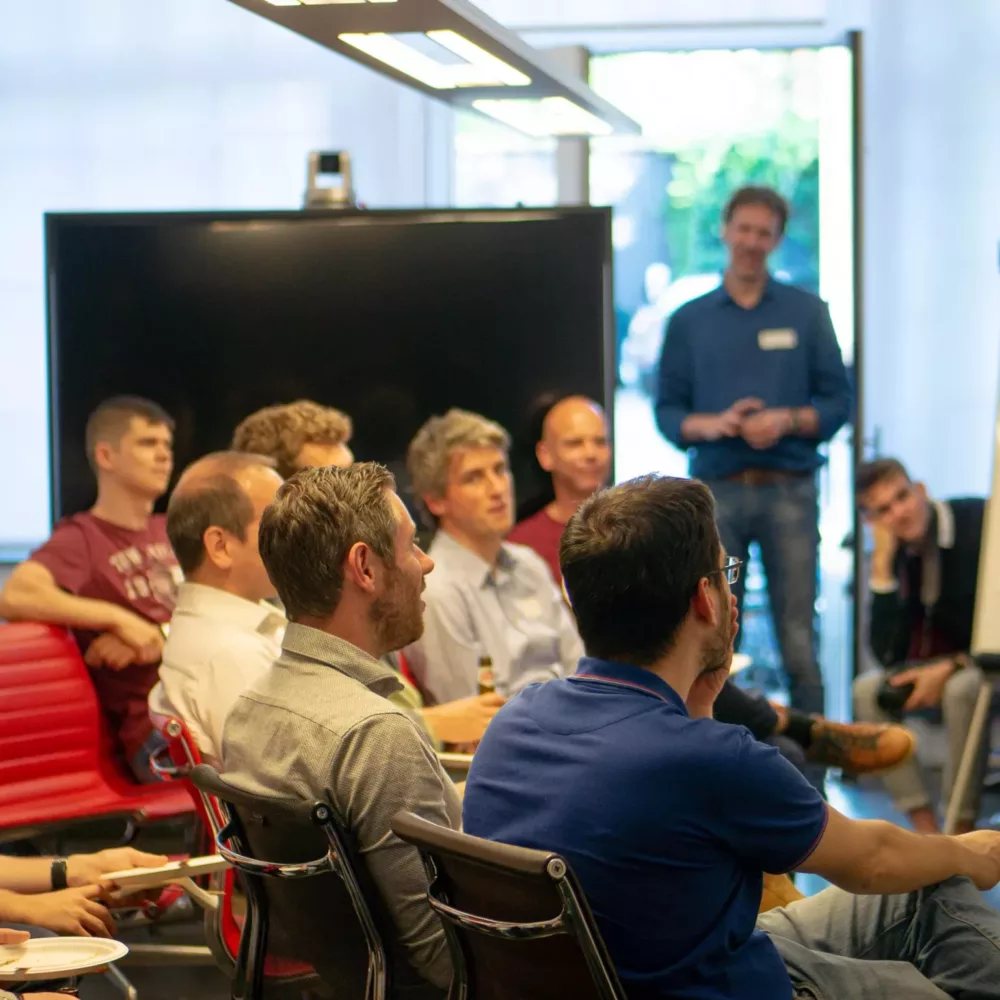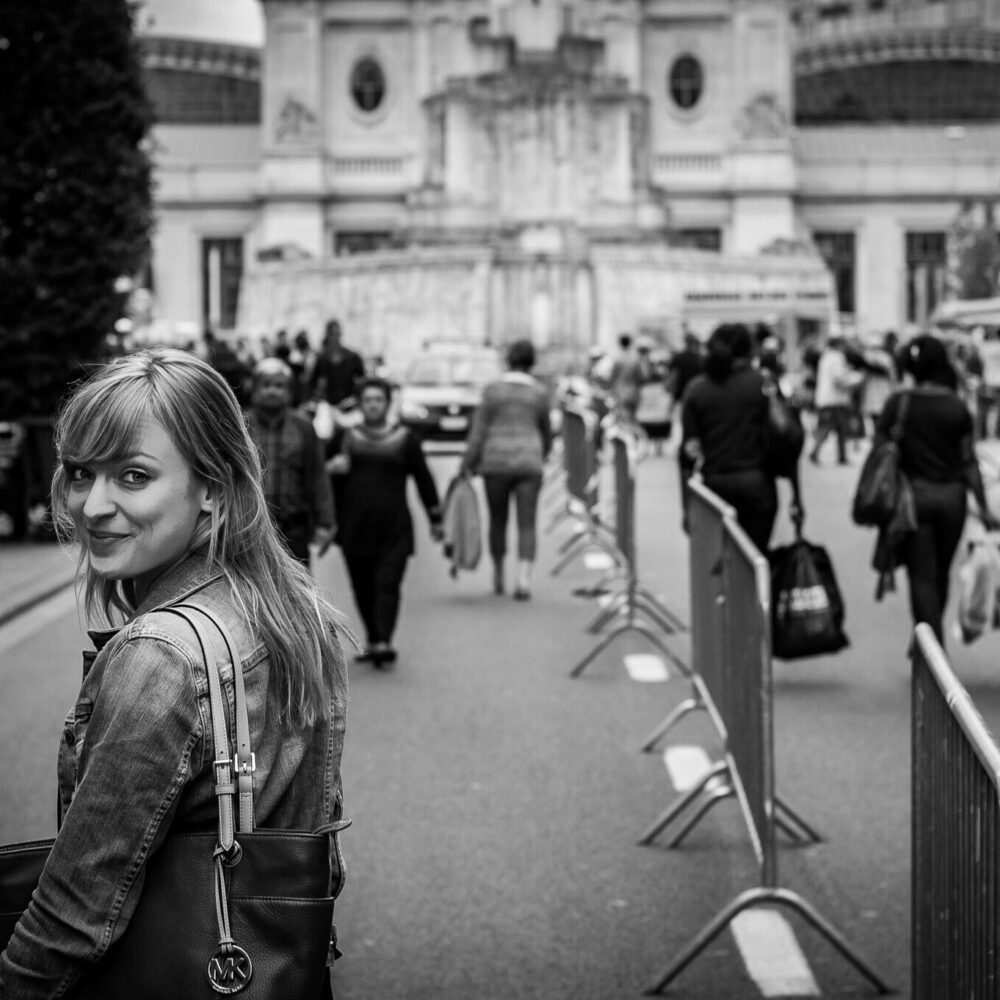Looking back on going forward really fast – part 2
In part 1 we read how – through his fascinating journey – Jo Vandebergh got the inspiration of what would later become Bringme’s very foundation. Part 2 takes us 10 years back in time to the early days of what would later become Bringme and provides us with a thrilling glimpse of the vision behind the brand. A must-read for anyone who wants to understand Bringme.

An interview with Bringme CEO Jo Vandebergh
After Jo Vandebergh hit the ground running in the car trade and peregrinations via children's clothing, food, property, and hospital software (you can read all about Jo Vandebergh's fascinating journey in part 1), the idea of a smart home delivery box began to take shape in 2006. One problem: ten years ago, we were hardly ordering anything online in Belgium. Still, Jo assumed that online shopping would become very successful. We're very curious to see how that original idea developed into what Bringme is today.

Let's get right down to business: did much about that initial idea change?
The core remained the same, but quite a lot about the rest has been changed. I still remember the first sketch: the box was drawn on the wall of an apartment. If you looked through that box, you saw a woman get the recently delivered groceries out of the box while the children were doing their homework. We clearly had no idea of what such a delivery box ought to look like. We screened the entire internet, but there wasn't a single system on the market that even partially met expectations. So I thought: we'll make it ourselves. I had acquired a great deal of knowledge from the hospital software and had developers working for me who could begin building it. The original intent was to develop a kind of digital butler service: MyJames consisted in a multitude of functions boosting your convenience at home. But as a small player, developing a system with that many functions wasn't feasible. So it was important to focus our efforts. Among all those functions, there was always one that stood out, and that was the home delivery box. So we completely focused on that. The first Bringme Box we made to measure for the Balk van Beel. Every apartment there has had its own delivery box for four years now. By developing the system and seeing it in action, everything gained momentum. I realized: if we mutualize this, then we'll really have a product for everyone and, in theory, we'll be able to fit out every building with one of these smart logistical units.
Is that idea still at the core of the Bringme Box today?
It is, really. That logistical unit is the alpha and omega of the whole enterprise. But what if you connect them and turn them into a network? The more I started thinking about Bringme, the more possibilities it appeared to hold. And the more I considered the possibilities, the more possibilities those possibilities yielded. In the beginning it really drove me mad. As a holistic thinker, you haven't got a second's peace because you're always trying to map out the whole picture. I noticed that Bringme was a lot more than just a solution to the problem of home deliveries. It was a story in and of itself. But how do you grasp something like that in a single sentence? We still haven't managed. Every definition seems to detract from the possibilities.
Daring - attention to detail - versatility - innovation: those seem to be four qualities that characterize you. Am I close?
You're close! But I'd like to replace innovation by complexity: restoring order to chaos, disentangling it. Things that seem too complex to get started on trigger me enormously. For instance, we're now hard at work on our first big Hands-free Shopping project in Ghent, a complex tangle of involved partners entailing a lot of pitfalls. The greater the complexity, the more alert I am and the more motivated I become to bring things to a favourable conclusion. I think I'm now living the most exciting time of my life. I consider it a privilege to be working on something so incredibly interesting, something with a real impact, not just in my hometown, but on a worldwide scale. In a world that evolves so quickly, there's very little leeway to do something new. If you do manage to achieve that and to change people's daily habits, you have to be grateful for that. I want to be a part of the technological revolution that's now taking place.
What valuable lessons learned from previous projects are you applying to Bringme?
Oh, that's a tough one... I've learned so many things. I don't have a top 3 or anything. The advantage of my exceptional track record and the many different trades I plied is that I have experience in many different fields and that I've learned to work on widely divergent tasks simultaneously. Another edge I have is probably the commercial feeling I've developed. How do we tackle that market and how do we overwhelm it completely? Looking back on the past 18 months, I feel we've not done badly at all given the complexity of the story we're telling with Bringme.
What are Bringme's priorities for the future?
Our top priority must be to develop a product that's better than the rest. The second priority is scale: become as big as possible as soon as possible. On the condition we keep building a top-notch product, of course. In so doing, we want to stay ahead of the trend. Right now, the market expects home delivery, and that makes sense: there's nothing so convenient as getting something delivered when you're home. But what we do goes the extra mile. Bringme allows you to have your orders delivered to your workplace: "before-home delivery". Even better than home delivery, because your parcel is kept safely and discreetly until you decide: this is the time to take it with me. In addition, as a digital player, Bringme should especially pay attention to what's going on offline. The physical aspect, that's what we have to bank on, big time. We are and will always be human beings. That's why we need to keep embracing and connecting that physical environment. Call it—literally—having both feet planted firmly on the ground in a digital world.
We'll remember that. Thanks for the interesting conversation!


